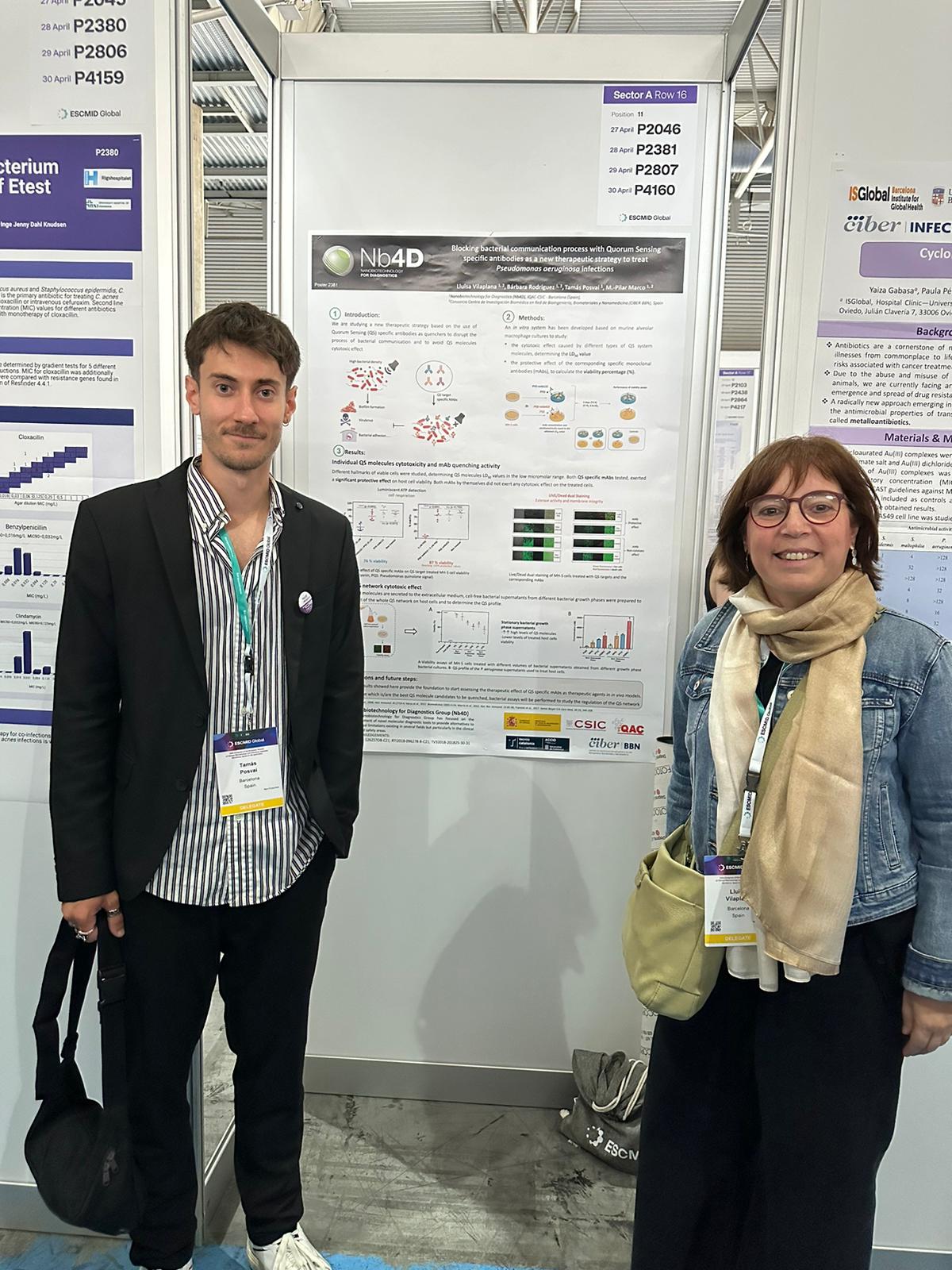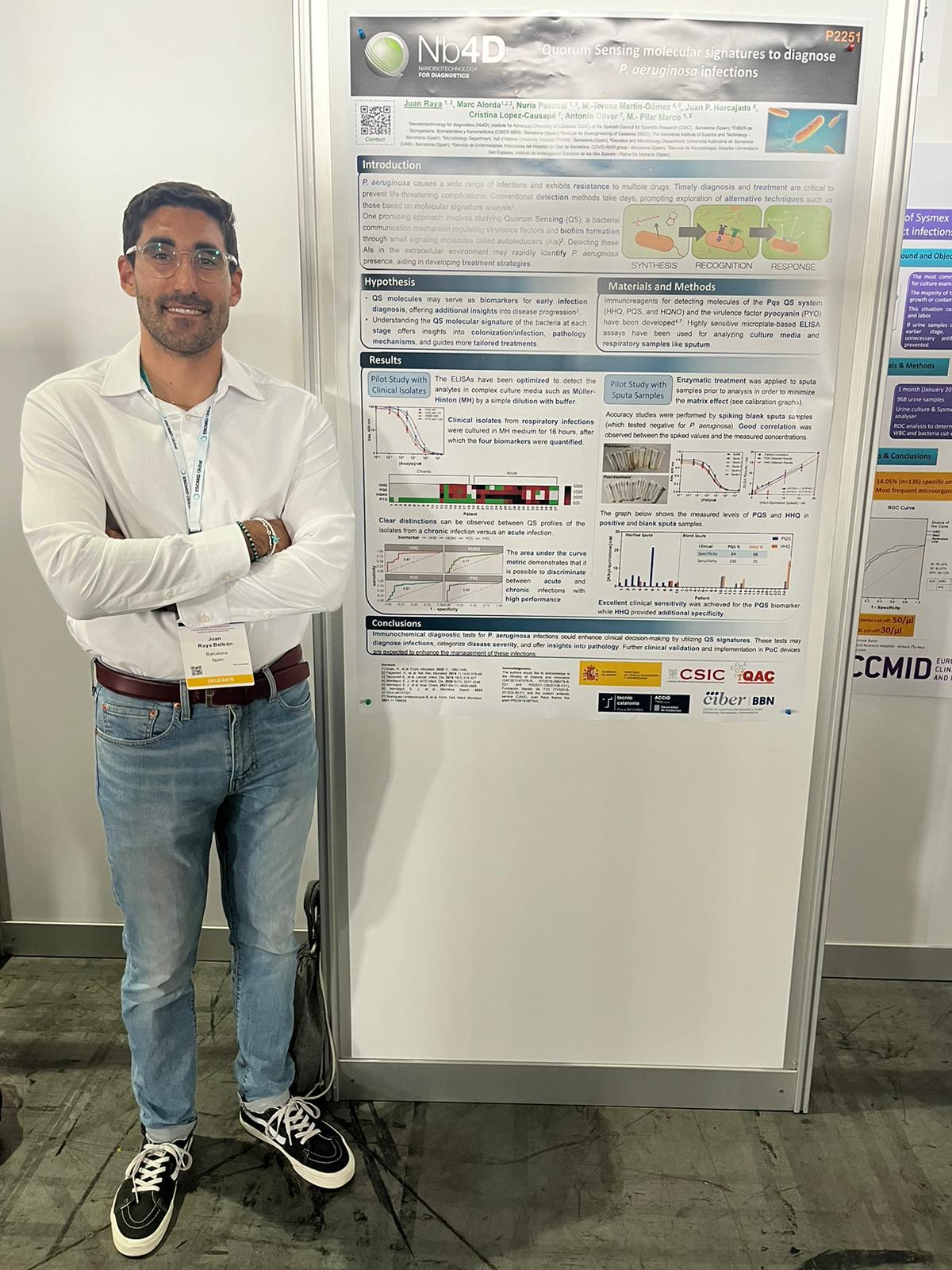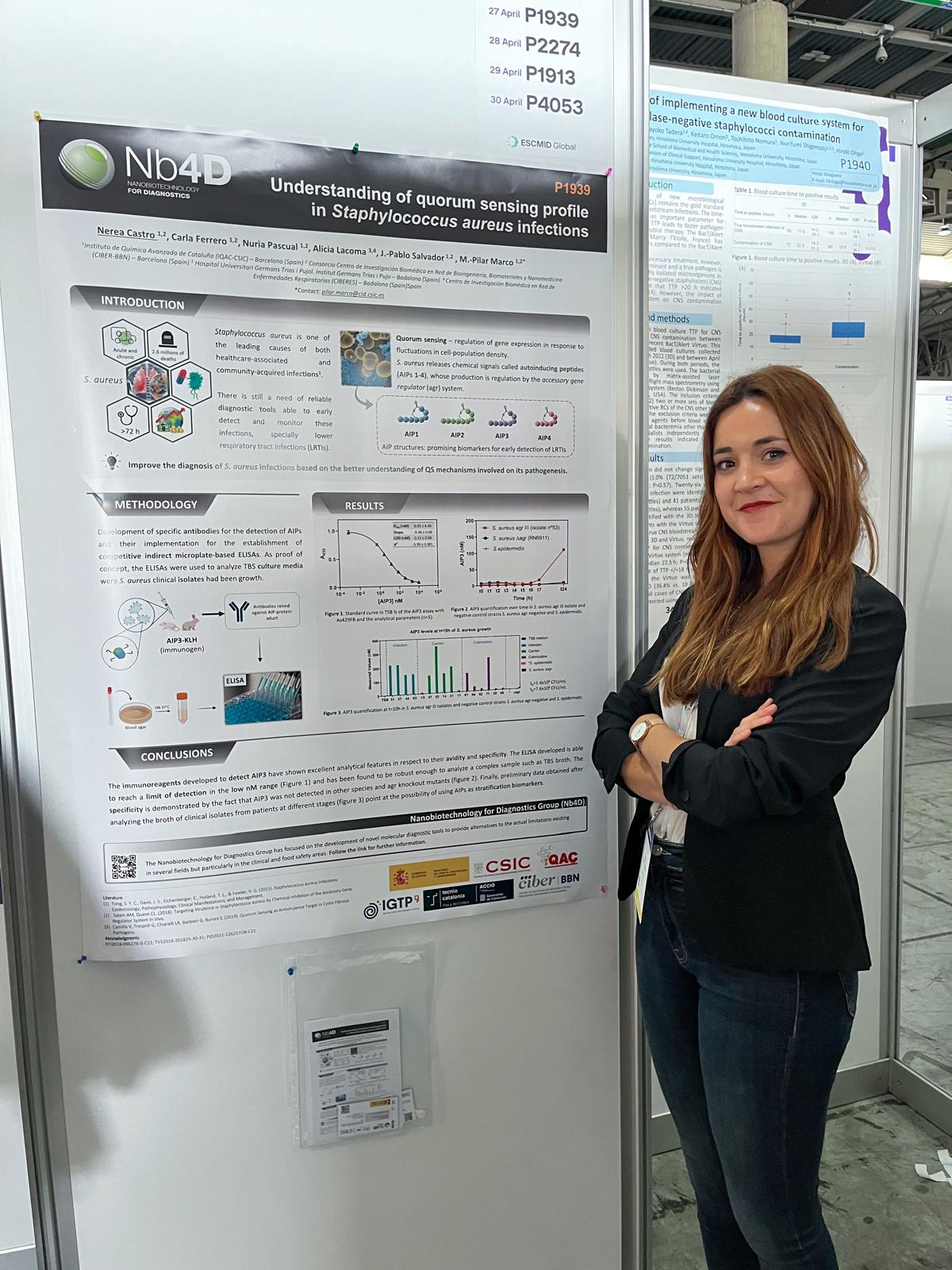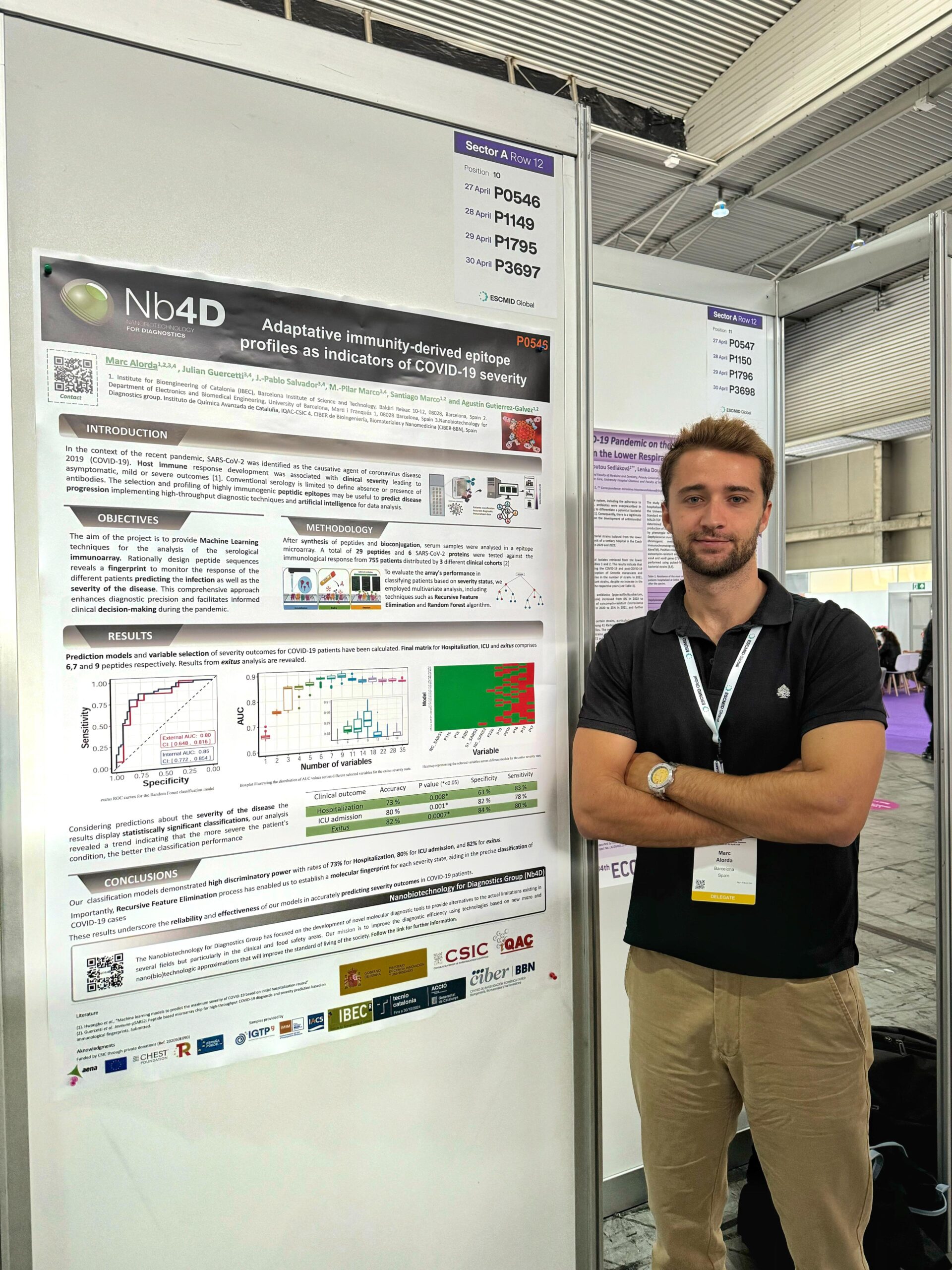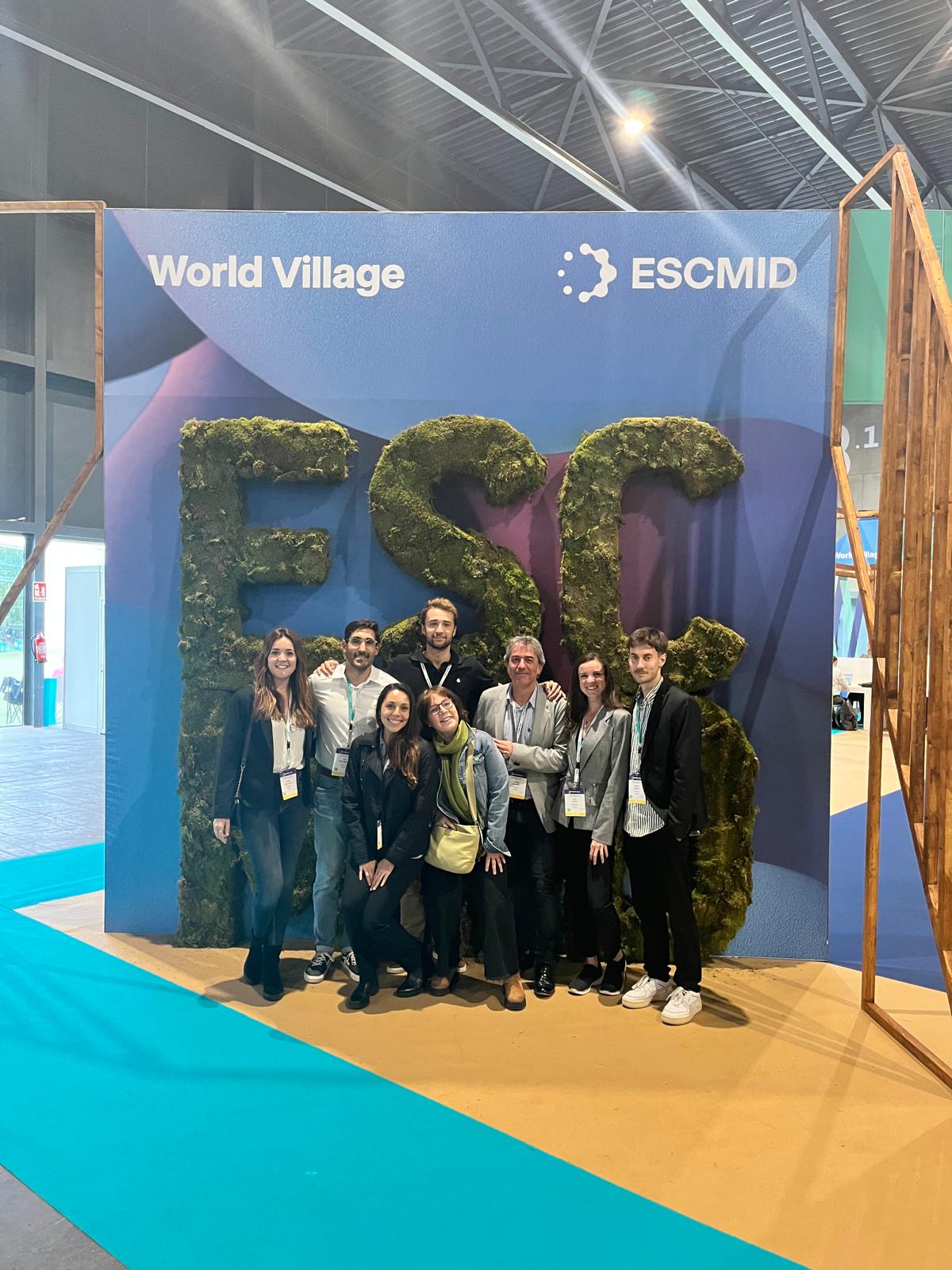Since 27th to 30th April Barcelona has hosted the 34th edition of the European Congress of Clinical Microbiology and Infectious Diseases (ECCMID), one of the most prominent international dissemination events in its field. Yet another year, the Nb4D group has had a prominent presence there, even more than in other editions thank to being celebrated in our city.
In our way to develop a new generation of more efficient in vitro diagnostic tools, infectious diseases have been getting more relevance for us in the last ten years. If our focus has been placed for many years on the detection of the superbugs Pseudonomas aeruginosa and Staphylococcus aureus, lately we have broadened our research to viral infections such HIV and COVID-19.
Up to 10 members of the Nb4D group attended the ECCMID 2024, and 5 of them took the chance of presenting their research in the poster sessions. Lluïsa Vilaplana, from the senior scientific staff, showed how the therapeutic potential of monoclonal antibodies targeting P. aeruginosa quorum sensing (QS) molecules is investigated, together with the visiting student Tamás Posvai. Furthermore, Nerea Castro, Marc Alorda, Juan Raya and Irene Rovira, predoctoral students, could present their Theses’ work. The research of Juan and Irene pursues how to diagnose P. aeruginosa infections in clinical samples in a rapid, accurate and specific manner through detecting diverse QS molecules, but also establishing molecular profiles to infer more information such as disease stage or chronic/acute infections differentiation.
Similarly to Juan and Irene, Nerea targets the QS molecules of Staphylococcus aureus to develop immunochemical diagnostic techniques as well. These immunoassays, in collaboration with Carla Ferrero (PhD student too), aim also to phenotype the Staphylococcus strain causing the infection.
Finally, Marc presented a bioinformatic extensive study of the serological IgG response of Covid-19 infected patients, part of a project whose objective was to detect antibodies against different viral epitopes and develop a model to predict, with them, the gravity of the infection. This project counts on the collaboration of the Signal and Information processing for Sensor Systems Research group, leaded by Prof. Santiago Marco (IBEC-UB) and was part of the Thesis of our former student Dr. Julian Guercetti.


